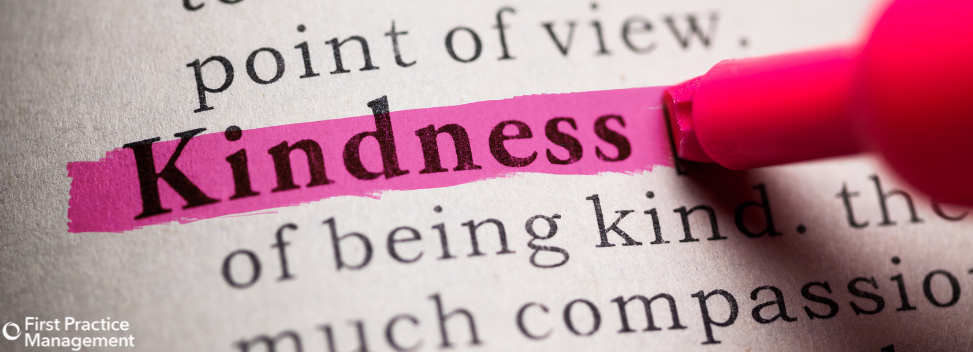
Social media has revolutionised the way the world communicates and connects, and it is no different in the healthcare sector. It offers a powerful platform to engage with patients, share health information, and build trust. However, it's essential to navigate this digital landscape with care and consideration.
Social Media Kindness Day and Its Relevance to Healthcare
Social Media Kindness Day is an opportunity to promote positive online behaviour. Your Practice can participate by:
• Sharing Kind Messages: Spread positivity and empathy.
• Encouraging Respectful Online Interactions: Promote a culture of kindness.
• Educating Patients on Responsible Social Media Use: Help patients navigate the digital world safely.
Dealing with Social Media Issues
Negative comments and trolls can be a frustrating reality of social media. It's important to respond calmly and avoid engaging in arguments. Instead, focus on de-escalating the situation and reporting abusive behaviour to the platform.
Staff misconduct on social media can damage any business’ reputation. To prevent this, it's essential to have clear guidance and policies in place, and to take disciplinary action where there is a serious issue.
‘Crisis management’ is crucial in the age of social media, and having a well thought-out plan can remove or minimise any damage during a crisis. It's important to respond quickly and accurately to address concerns and maintain trust with your patients (and followers).
The Benefits of Social Media in Healthcare
Patient Engagement
Social media provides a platform for healthcare providers to share timely and accurate health information, dispel myths, and promote healthy behaviours. Having direct interaction with your patients allows for questions to be answered promptly and accurately. Open and honest communication builds valuable trust between you as a healthcare provider and your patients.
Recruitment and Staff Retention
Social media can be used to showcase your culture and values, important attributes if you are a practice hoping to attract (and keep) top talent in the future. Internal social media platforms can boost employee morale and a spirit of teamwork and connection when used well, and build a sense of pride and loyalty with your teams.
Crisis Communication
In times of crisis, social media can be used to provide timely updates and address concerns. The COVID-19 pandemic highlighted the critical role of effective crisis communication, especially through social media. GP practices were instrumental in disseminating important health information to their patients from government sources like NHS England and the UK Government, and making sure it was accurate and up to date to counter any misinformation. Effective crisis communication can help mitigate negative publicity.
Best Practices for Social Media Use in Healthcare
Develop a Social Media Strategy
• Define Goals: Clearly outline what you want to achieve with your social media efforts.
• Identify Target Audience: Understand who you want to reach and tailor your content accordingly.
• Choose Platforms: Select platforms that align with your goals and target audience.
• Create a Content Calendar: Plan your content in advance to ensure consistency.
Create High-Quality Content:
• Accurate Information: Share only verified and up-to-date information.
• Clear and Concise Language: Use simple language to avoid confusion.
• Visual Appeal: Use images and videos to enhance engagement.
Monitor and Engage with Your Audience:
• Respond Promptly: Address comments and messages in a timely manner.
• Handle Negative Feedback Professionally: Respond calmly and constructively.
• Use Social Listening Tools: Monitor online conversations about your organisation.
Protect Patient Privacy and Confidentiality
• Adhere to Regulations: Comply with NHS data protection rules, UK laws and GDPR.
• Avoid Sharing Personal Health Information: Protect patient privacy.
• Use Strong Privacy Settings: Limit access to sensitive information.
Train Your Staff
• Provide Guidelines: Establish clear guidelines for social media use.
• Offer Training: Equip staff with the knowledge and skills to use social media effectively.
• Monitor Staff Activity: Keep track of staff's online behaviour.
Social media can be a powerful tool for healthcare organisations, but it's important to use it responsibly. By following best practices, healthcare providers can leverage social media to improve patient care, enhance their reputation, and build stronger communities.
Remember: Social media can be a powerful tool in promoting your practice and communicating with your patients, but it is also a double-edged sword. To paraphrase a movie quote, ‘with great power comes great responsibility’; remember to use it wisely.
You can read the NHS's own guidelines for social media use here.
Access a Social Media Policy template on our market-leading compliance software FPM Core.

0 Comments